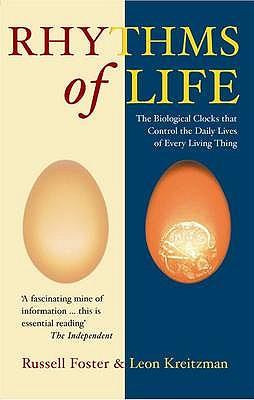Popular science at its most exciting: the breaking new world of chronobiology - understanding the rhythm of life in humans and all plants and animals. The entire natural world is full of rhythms. The early bird catches the worm -and migrates to an internal calendar. Dormice hibernate away the winter. Plants open and close their flowers at the same hour each day. Bees search out nectar-rich flowers day after day. There are cicadas that can breed for only two weeks every 17 years. And in humans: why are people who work anti-social shifts more illness prone and die younger? What is jet-lag and can anything help? Why do teenagers refuse to get up in the morning, and are the rest of us really 'larks' or 'owls'? Why are most people born (and die) between 3am-5am? And should patients be given medicines (and operations) at set times of day, because the body reacts so differently in the morning, evening and at night? The answers lie in our biological clocks the mechanisms which give order to all living things. They impose a structure that enables us to change our behaviour in relation to the time of day, month or year. They are reset at sunrise and sunset each day to link astronomical time with an organism's internal time.

Popular science at its most exciting: the breaking new world of chronobiology - understanding the rhythm of life in humans and all plants and animals. The entire natural world is full of rhythms. The early bird catches the worm -and migrates to an internal calendar. Dormice hibernate away the winter. Plants open and close their flowers at the same hour each day. Bees search out nectar-rich flowers day after day. There are cicadas that can breed for only two weeks every 17 years. And in humans: why are people who work anti-social shifts more illness prone and die younger? What is jet-lag and can anything help? Why do teenagers refuse to get up in the morning, and are the rest of us really 'larks' or 'owls'? Why are most people born (and die) between 3am-5am? And should patients be given medicines (and operations) at set times of day, because the body reacts so differently in the morning, evening and at night? The answers lie in our biological clocks the mechanisms which give order to all living things. They impose a structure that enables us to change our behaviour in relation to the time of day, month or year. They are reset at sunrise and sunset each day to link astronomical time with an organism's internal time.